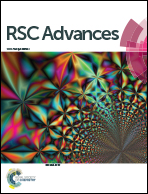Tailoring lipid digestion profiles using combined delivery systems: mixtures of nanoemulsions and filled hydrogel beads
Abstract
There is considerable interest within the food and pharmaceutical industries in controlling the rate of lipid digestion within the gastrointestinal tract (GIT) to create functional foods with particular physiological effects. In this study, the lipid digestion profile was modulated using mixed colloidal delivery systems containing a mixture of free and encapsulated lipid droplets. Free lipid droplets were fabricated using a microfluidizer to generate an oil-in-water nanoemulsion. Encapsulated lipid droplets were fabricated by injecting a nanoemulsion/alginate solution into a calcium bath to generate filled hydrogel beads. Simulated GIT studies indicated that the rate and extent of lipid digestion was strongly dependent on the ratio of free to encapsulated lipid droplets. Free droplets were digested much more rapidly than encapsulated droplets because it was easier for lipase molecules to come into contact with the droplet surfaces. Varying the ratio of free and encapsulated lipid droplets in the emulsions could therefore be used to control the lipid digestion profile. These mixed colloidal delivery systems may have applications in functional food products designed to modulate triglyceride blood levels, hormone release, and energy intake.


 Please wait while we load your content...
Please wait while we load your content...